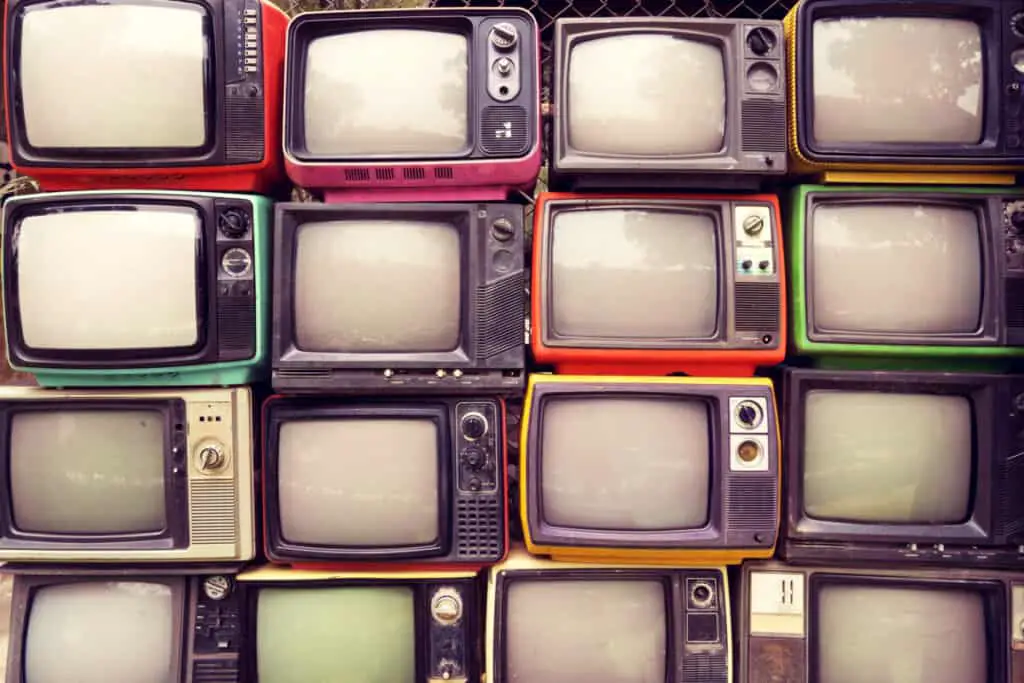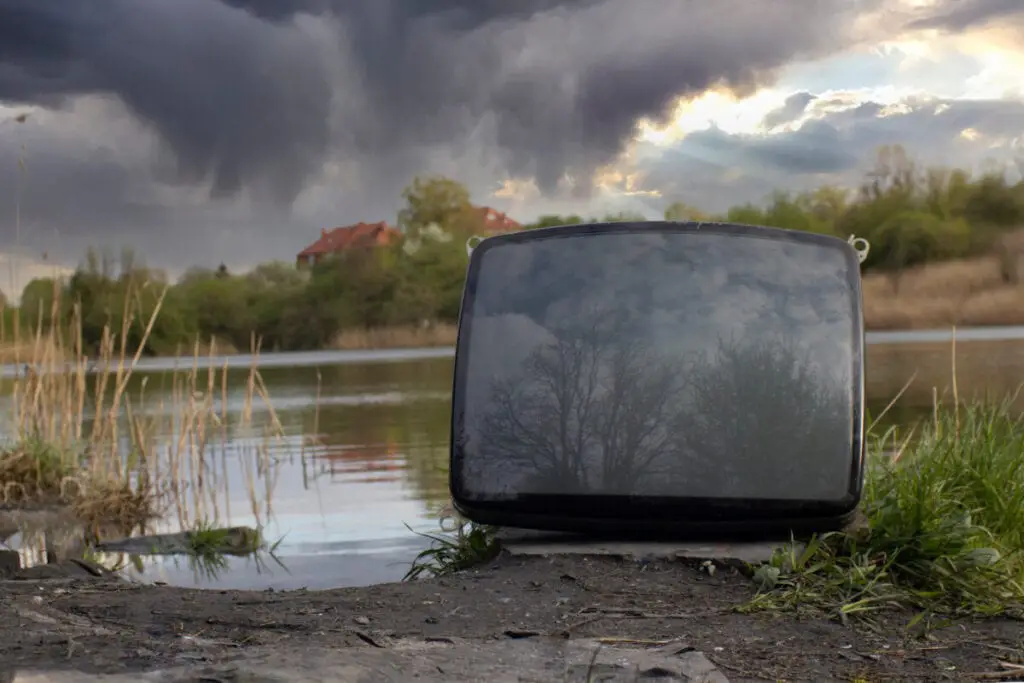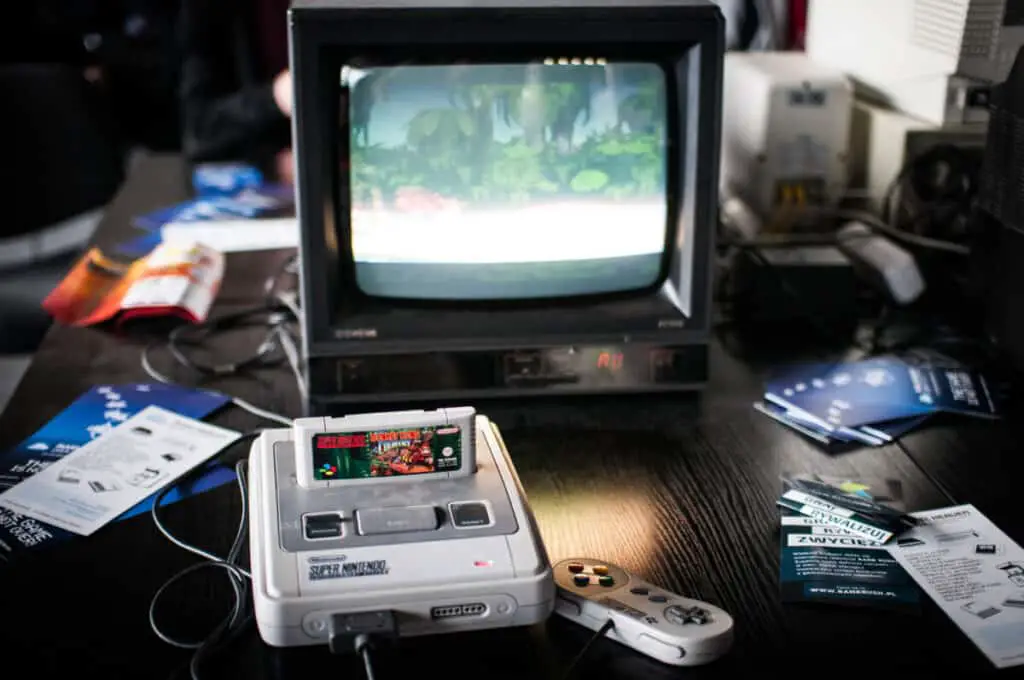
Tube TVs, otherwise known as CRT TV’s, are an aging piece of technology in a market with newer, more advanced alternatives turning up every day. Many people may have one laying around in their house, perhaps gathering dust in the attic while their newer flat screen hogs the glory in the living room. If you are one of these people, then you may be interested in finding out the correct way to dispose of your tube TV.
The best options for disposing of a tube TV are donating it, bringing it to a recycling plant, or selling it. One should never throw away a tube TV into the garbage or leave it at a landfill, as these TVs contain significant amounts of toxic chemicals inside.
This being said, you may not know where to look to move forward with any of the above options. Never fear! Read on in order to find out the specifics about getting rid of your CRT in the best ways possible.
Why You Should Never Throw Away a Tube TV
Tube TVs, or CRT TVs, were a staple in American households for a long time. What many people may not realize, however, is that these TVs contain a large number of chemicals that can pollute the environment significantly if these devices are not disposed of properly. CRTs often contain lead, barium, cadmium, and other potentially hazardous elements, that if not removed from TVs properly before disposing of them, can leak into groundwater (source).
This concern is so significant that, according to the EPA, CRTs are considered hazardous waste and it is, therefore, illegal to dispose of them improperly (aka. tossing them in a dumpster or leaving them at a landfill). It is definitely best not to poison the waterhole, so to speak, and also best not to receive a fine for trying to toss your old TV somewhere you shouldn’t. The next paragraphs will describe in-depth some much better options than this anyways, that will either see to it that someone benefits from your old TV, or see to it that your TV is recycled in a safe manner for all those involved.

Donating a Tube TV
While they are certainly a little old by this point, a working Tube TV is something that some places will still accept as a donation. Homeless shelters, schools, and other organizations may be willing to accept Tube TVs. Thrift stores sometimes accept tube TVs, although you should note that Goodwill, one of the most popular thrift stores out there, does not accept tube TVs, stating the transition over the past two decades from these TVs to flat screens (source).
A good rule of thumb is to always call ahead beforehand to see whether or not your donation of a tube TV would be wanted or accepted; depending on where you are trying to donate them, the response may vary widely. Some places may offer to come to do a pickup, but in many cases, you will have to deliver the T.V. over to your recipient organization yourself. Make sure your car is big enough before you haul your dinosaur of a TV out to the curb, because, speaking from personal experience, these things are crazy heavy. Lift with your legs! You may even want to get someone else to help you move your old TV, especially if it is one of those monster-sized ones from the 90s that probably set you back way more money than you would prefer to admit.
Selling Your CRT
It may be burdensome to you, but for many people, old CRTs are an increasingly rare resource that they consider to be something of value. This is especially true for those who are into retro gaming.
CRTs are valuable to retro gamers for a few key reasons. One of the foremost of these is that older consoles were designed to work on these old beasts, and not Plasma and LCD TVs. (It is funny to note that even plasma TVs, once regarded as a potential new standard for TV technology, are now being abandoned as well along with CRTs). These old monitors display the games on these consoles as crisp as possible, without the weird visual confusion and blurriness that trying to play them on newer TVs causes.
This blurriness is due in part due to the algorithms new TVs use to upscale content, which are horrendous at preserving the look of older games, especially those which were created with pixel art. Said algorithms are the same reason that modern TVs suffer from input lag, or from an increased amount of time from the moment someone presses a button on their game controller and the moment this action is displayed on the television. CRTs simply do not use said algorithms and display games smoother as a result.

The scan lines present in older televisions also helped to create a nostalgic and visually distinct image in each retro game. These are hard to replicate properly, if at all, on newer televisions. 3D games can benefit from the softening effects of some older TVs, hiding their technical limitations and thus making for a much better experience.
So what does all of this mean for you, who has an extra CRT TV? Well, if you are into retro gaming, it means you are lucky, and if not, you may be even luckier. Because of the retro gaming trends of recent years, some models of Tube TVs are now worth a large sum of money. Some models have been sold for as much as several thousand dollars. By looking into your options for where and who to sell your TV to, (eBay is still a popular option, as well as Facebook Marketplace.) you may score it big with this option (source).
Recycling Your Tube TV
Many electronic recycling centers will take old TVs happily. They contain precious minerals and materials that can be carefully removed through the recycling process and thus with some work represent some amount of monetary value to them. Some recycling pickup services will also take your tube TV straight from your curb for you. Once again, it is good to call ahead of time to see which facilities are willing to take them so you don’t waste time on a pointless drive. In addition, some electronics recycling centers may charge a fee for them to take your tube TV off your hands. Finally, some manufacturers have a return option in which they will recycle your TV for you if you send it to them, with Sony being a prime example. Not all manufacturers make this an option, however, so you may need to do your research in order to find out where to take your TV.
Related Topics:
If you like the article above, here are some other similar articles you should check out!
